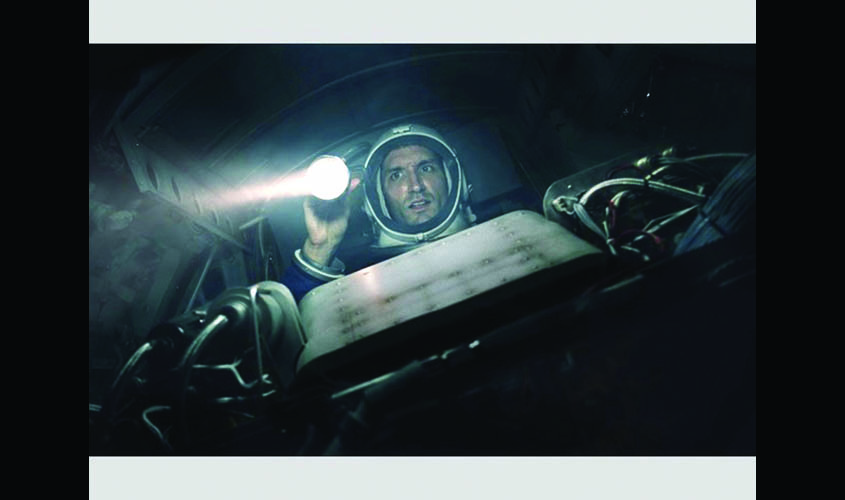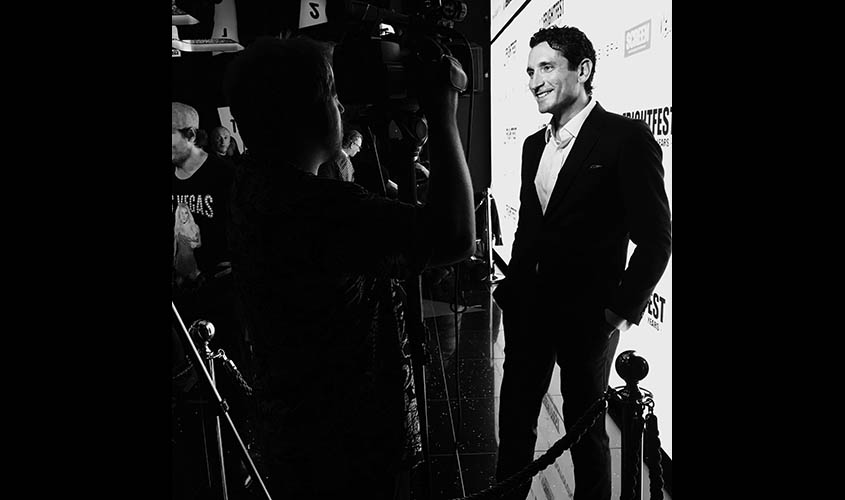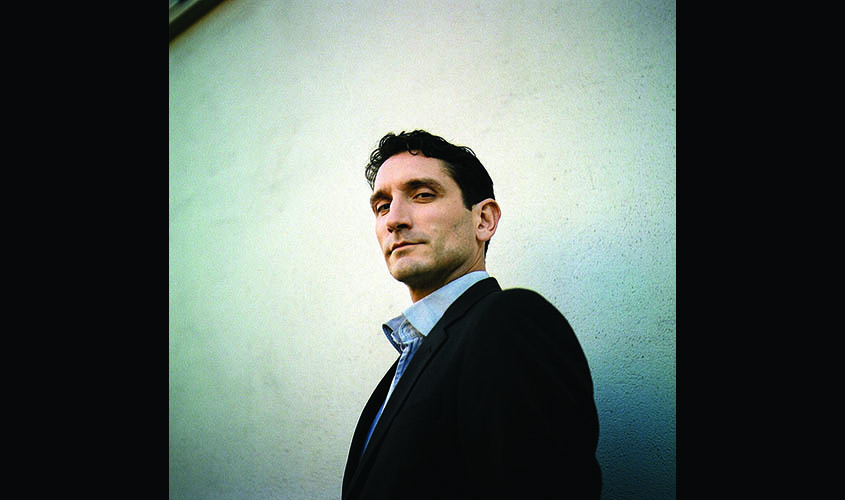Actor and producer Edmund Kingsley, known for his award-winning performance in the 2015 sci-fi drama Capsule, attended the Pune International Literature Festival in September this year, and is planning more visits to India in the near future for a possible film project. He speaks to Nirmala Govindarajan about his acting career, his mastery of Shakespearean theatre, and the lessons he learnt from his father Ben Kingsley.
Tell us about your India connection?
I’ve visited many parts of India over the years, and hope to keep coming back whenever I can as I think it’s the most extraordinary, inspiring place on earth. I’m lucky to have many friends here, and of course there’s a family connection through my father, Ben Kingsley [the prominent actor known for his award-winning role in Richard Attenborough’s Gandhi]. His father was ethnically Gujarati, though we come from a branch that settled in Zanzibar before spreading out all over the world. Because of that, a lot of my cultural life has had a strong Indian influence, especially through music and movies. And of course, Indian food is the best in the world!
Q. How was your experience of playing the role of Guy Taylor in the acclaimed 2015 science fiction film Capsule?
A. Capsule had unique challenges—in the film there’s a lot of me on my own, in a spaceship, talking to voices on the radio. So for most of the shoot, I was the only actor on set. That’s tricky because without other actors to check in with, there’s a danger of losing grip on the reality of the story and the scene. Because of those challenges and how everyone involved worked together to overcome them, it’s especially satisfying that the film has been so well received all over the world, and that people have responded so generously to my part in it.

Q. When did you spot the actor in you?
A. My earliest memories are of my first job, aged two, playing Eppie in a wig and a dress in a TV production of Silas Marner. Also, growing up, there were plenty of chances to appear in plays at the Royal Shakespeare Company. Though of course there are lots of other actors I admire, I can’t really point to a production or performance I saw, that firstmade me want to act, as, by the time I was watching them, I was already doing it myself. Of course, it’s a tremendous privilege growing up in a family with an actor like Dad, and with my mum [Alison Sutcliffe], who’s a brilliant theatre director and scriptwriter.
Q. As you said, you have always been inclined towards Shakespearean theatre. Tell us about some of Shakespeare’s characters you’ve essayed that have stayed with you.
A. Growing up in a theatre family near Stratford-upon-Avon, where Shakespeare is really the only game in town, I was exposed to those rich stories and huge characters from a young age. In as much as any actor can plan their career, I try to come back to Shakespeare and his contemporaries, or something new that explores his world, like The Secret Theatreat the Globe or Shakespeare in Love, whenever I can. Some of my happiest stage jobs have been back in Stratford at the Royal Shakespeare Company. But his plays and influence spread everywhere in British theatre and beyond. I am the editor of a project that will transform Shakespeare’s plays into comic books and graphic novels, drawn by some really exciting artists.

Q. Tell us about your training as an actor at London’s Royal Academy of Dramatic Art (RADA), your love for the stage and for the big screen.
A. It’s certainly true that the training you get at RADA gives you the tools you use on every single acting job. However, theatre is all about building a performance you can sustain for hours at a time for weeks or months on end, whereas filming is about focusing your energy on a few minutes or even seconds of the story each day, and then moving on to something else. They require different skills and different patterns of energy, but I love both and as far as possible, try to keep a balance between them in the work I do.
Q. You are also a How do you straddle the logic of production, with the method and madness of acting?
A. I start work on a role with a pencil and paper, examining why the character says and does what he does, what other characters say about him, what all that means in the context of the world of the story, and so on. That done, I can let my subconscious build on that framework in a more instinctive, imaginative way, led by what just feels right, what I’m getting from the director and creative team, and whatever is happening with the other actors. Because of that, producing doesn’t feel like a huge departure—lots of background work, research and checking details. But then, also a reliance on instinct for what will work. Over the last few months, I’ve been part of setting up a new production company, Lakesville Productions. And there are a couple of reallyexciting things coming together that I can’t talk about just yet…
What are your dream roles?
A. I don’t know about dream roles. Just being able to make a living doing a job I love is a great privilege, and for me part of the pleasure of that job is other people seeing something in you that you haven’t seen or explored yourself and giving you the chance to live that out.
However, there are some things coming up that I’m excited about: It looks like the next gig will be back on stage in Oxford, with some old pals in a really fun show. And I’m also partly through a fascinating project called The Gift. We’ve already filmed the first section in Paris, and there’s Belgrade and Warsaw to go. Then there’s a war movie called The Victors that should come together next year that I’ll be the lead in. I’m not sure if I’m allowed to tell you this, but since the Pune trip, I’ve also been talking to people about a great antagonist role in a big Bollywood movie, which would be fantastic if it all came together.
Q. Why Bollywood?
A. Because I love making movies, and Bollywood makes the biggest, boldest, most beautiful movies in the world. I’ve always been blown away by Indian cinema, and I’m indoctrinating the next generation, too. I sang both my kids to sleep with “Mera Naam Chin Chin Choo”.
And because I love India, and whilst visiting as a tourist or coming here to catch up with friends is wonderful, there’s nothing like working here if you want to deepen your connection to and understanding of the place.
Q. Tell us a little bit about your life off the stage/screen.
A. When I’m not on a project, I run, read, write and watch as many movies as I can. As we’re balancing the needs of two under-fives and two freelance show business careers (my other half is Anna Morrissey, opera director, movement director and choreographer), the time for hobbies is quite limited. But there’s a corner of the living room that’s full of stringed instruments (guitars, ukuleles, a mandolin and even a sitar) that we pick up and play whenever we can. And, I love to cook (though my taste is sometimes a bit too mirchi for the kids!). We’re also trying to do our bit for the environment by doing most of our family trips on our cycle rickshaw and helping to look after a vegetable patch that’s shared by all our neighbours.
Nirmala Govindarajan is the author of Taboo, Hunger’s Daughters and The Community Catalyst

